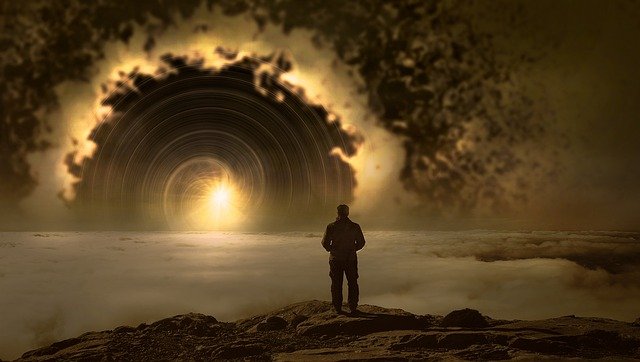
Deism considers that God is the creator of the natural world.
Deism is a current of philosophy that admits, through reasoning and experience, the existence of God as creator of the natural world. The doctrine, however, does not accept other characteristic elements of religions in their relationship with divinity, such as the existence of revelations or the practice of cults .
It can be said, therefore, that deists believe in God but not in religious practices and dogmas . Deism recognizes that God has created the universe although it does not believe in his subsequent intervention to orchestrate its destiny.
Principles of deism
For deists, miracles and the Holy Trinity do not exist. The manifestation of God occurs through natural laws , which can be analyzed from science . In general, deism rationally accepts that it cannot be proven that God exists since the act of believing, ultimately, is a matter of faith .
The deist movement, therefore, approaches God through reflection . It does not support organized and institutionalized religion, nor the doctrines and precepts emanating from supposedly sacred books.

The approach to God by deism is carried out through reflection.
Rationalism and ethics
Deists guide their behavior based on rational thinking and ethics linked to their own conscience. That is why they also reject the orders imposed by ecclesiastical leaders who claim to act as messengers of God and communicators of his Word.
Deism does not agree with the most important statements of religions, and they question them again and again due to the lack of satisfactory answers from their dogmas. Some characteristics of deistic people are the following:
* they do not accept that the existence of God has been completely represented or explained in the scriptures generally called sacred;
* to reflect on the characteristics of God they use reason and do not allow a doctrine to impose a series of immutable concepts on them;
* with respect to ethics, they try to be guided by their own conscience and their reasoning when making important decisions, instead of following rules imposed by institutions;
* They seek spirituality through spontaneous and unexplored paths, unlike those who adopt a tradition;
* They do not usually call themselves religious, but rather prefer the term spiritual to describe their relationship with God;
* They leave aside the superstitions that contaminate certain religious teachings and rescue the rational aspects that can be truly useful for the life of any person, religious or not.
From religion to deism
Many self-proclaimed religious people should consider themselves adherents of deism, since they do not practice or respect the dogmas of the religion they claim to follow. This happens especially with Christianity: in countries like Spain and Argentina, dozens of people say they are Christians although they never go to mass, have never read the Bible nor can they fluently relate the story of Jesus Christ, not to mention that they oppose the majority of the ideas of the Church .
The origin of deism dates back to Ancient Greece and its peak took place around the end of the 17th century. Great personalities in history have been identified or considered as deists. Aristotle , Plato , Immanuel Kant , Thomas Edison , Voltaire and Walt Whitman are just a few of them.
The notion in grammar
In grammar, deism is understood as the incorrect tendency to use the preposition of ; Although it does not have as much prominence as dequeism and queism , it also represents a problem that contaminates the communication of many Spanish-speaking people.
Let's look at some examples of deism: "They told me they were going to come in the afternoon" , "I told them to meet at their house tomorrow" ; In the first case, the preposition "de" should be omitted, and in the second it is advisable to say "I proposed staying."
